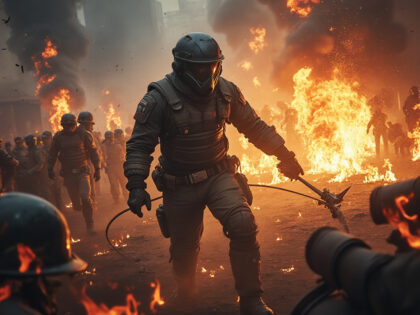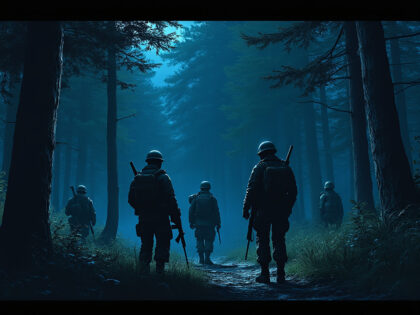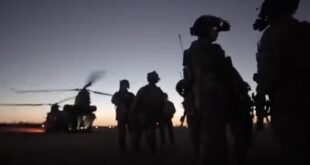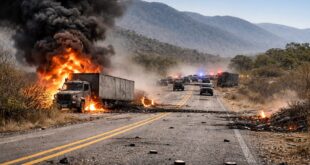COMMENTARY by Susan Katz Keating
My inbox is overflowing. In the wake of current events, some of my correspondents fear that the U.S. will implode. One reader, “Freaked Out,” writes: “I saw the story about you in The New Yorker magazine, and you talked about riots and civil war. Are we screwed? Is the U.S. headed to civil war? Is all hell about to break loose?”
Here is my response.
READ MORE from Susan Katz Keating: So You Want to Be a War Correspondent
Dear “Freaked Out,” I understand your concern. It’s tempting to think along those lines when the news is a nonstop series of alarm bells. But there’s no immediate need to run for the hills. If you re-read the article about me, you will see that I predicted unrest over any outcome, but no civil war. You don’t need me, though, to tell you whether we’re headed for a second war between the states. Here are some ways that you can gauge any contentious situation on your own, and decide how to act.
Unrest
First, take a baseline check. Are people rioting? Are they out on the streets en masse, smashing windows, setting fires, and committing other violent acts? Are they scaling fences or climbing the sides of buildings? Are they bullying random people? Are they wearing balaclava masks?
If so, hang tight, and ask another set of questions.
Does the violence last more than three days? Does it occur only on weekends, when people have time off from work, or does it take place throughout the week? Is it escalating, with no end in sight? Are you afraid to venture outside?
If so, you should assess further. The following markers are based on my readings of history and current events; and on my encounters with unrest and/or intrigue involving Central America, Croatia, Hong Kong, Kosovo, Montenegro, Northern Ireland, the Republic of Ireland, Serbia, and the United States.

Necessities
When you flick on your light switch, what happens? Assuming you’re paid up on the electric bill and there haven’t been any storms in your area, the lights will come on. The heating or air conditioning will work. The refrigerator will keep your food cold, and the oven will get it hot. Your microwave will defrost your frozen meat, or make popcorn so you can have a snack while watching your shows. If so: you have electricity.
When you turn on the faucet, what happens? Water comes out. You can get a drink, wash your dishes, take a shower, brush your teeth, and flush the toilet.
Do you have phone and Internet service?
Is fuel available? Can you approach the gas station and expect to fill your vehicle – without getting beaten up?
When you drive your car, do other drivers observe the traffic laws and customs? Do people wait for green to shift to red and vice versa, so that you don’t have to compete with others in order to use the road?
At the grocery store, is food available? Is anything being rationed? One key measure is whether you can shop freely, without being confined to buying things only on certain days, or by using a ration card. Another measure is whether you can get rice but not bananas; bread but not milk; or other limits.
Does money flow easily? Despite our reliance on electronic transactions, we still need to be able to get our hands on cash. Can you get it at the bank, or via ATM’s and grocery store cash-back functions?

To further your assessment of the basics, find out whether medical care is available. One vital sign is whether hospitals and doctors’ offices are open.
Check on schools and businesses. Do students attend class; do companies open their doors?
Can you call for help? If your house catches fire, or your car is stolen, or you are robbed / attacked / threatened, can you call 911? Will they respond?
All of these things are indicators of whether all hell has, indeed, broken loose. But there is more.
Mood
Has a political figure been assassinated? If yes, has more than one figure been killed?
Does everyone in your close and extended circles still speak to you? Have you been excluded from gatherings; or, do some of your contacts or neighbors seem to be meeting a lot lately in secret? Is anyone acting “sus?”
Public safety
These issues also come into play.
How’s the crime in your area? Is it holding steady? Has it gone way up (or oddly way down?)
How do the police interact with your community? Has the dynamic changed in any way between law enforcement and civilians? Things to look for are more / fewer arrests; increased / decreased overt surveillance; or longer / shorter / encounters with authorities.
Has anyone set up roadblocks? Do you need to go through a checkpoint in order to enter or leave certain areas?
Are citizens being searched at random?
Constitutional Guarantees
Here are some key metrics, based on Constitutional guarantees.
Check your First and Second Amendment rights. Can you can speak freely; read whatever you choose; associate with anyone you like; and obtain and use a weapon according to the laws of your state?
Check your other guarantees, also.
When you go to the polling place, are you able to cast your vote without being threatened?
Have you or others been accosted in your homes in the middle of the night? One measure of crisis is to ask whether people are breaking down doors and roughing up sleeping residents.

Overall
The notion that the United States is on the brink of a civil war is a recurring theme in political discourse. Rhetoric aside, though, we’re not even close. A civil war is a catastrophic, whole of society event. People only take up arms against their fellow citizens when their backs are against the wall, and they believe that they have no other choice.
Compare today’s dissent to what happened during the breakup of Yugoslavia; the Troubles in Northern Ireland; and elsewhere. The American Civil War, for example, was driven by issues that are not mirrored in today’s tensions.
Here in the United States, our society works well. Yes, we have serious divisions, but they don’t make life so intolerable that people will endure war in order to resolve them.
So, dear Freaked Out, here is my answer.
All hell is not about to break loose. The United States is not headed to civil war.
Susan Katz Keating is the publisher and editor in chief at Soldier of Fortune.
 Soldier of Fortune Magazine The Journal of Professional Adventurers
Soldier of Fortune Magazine The Journal of Professional Adventurers






